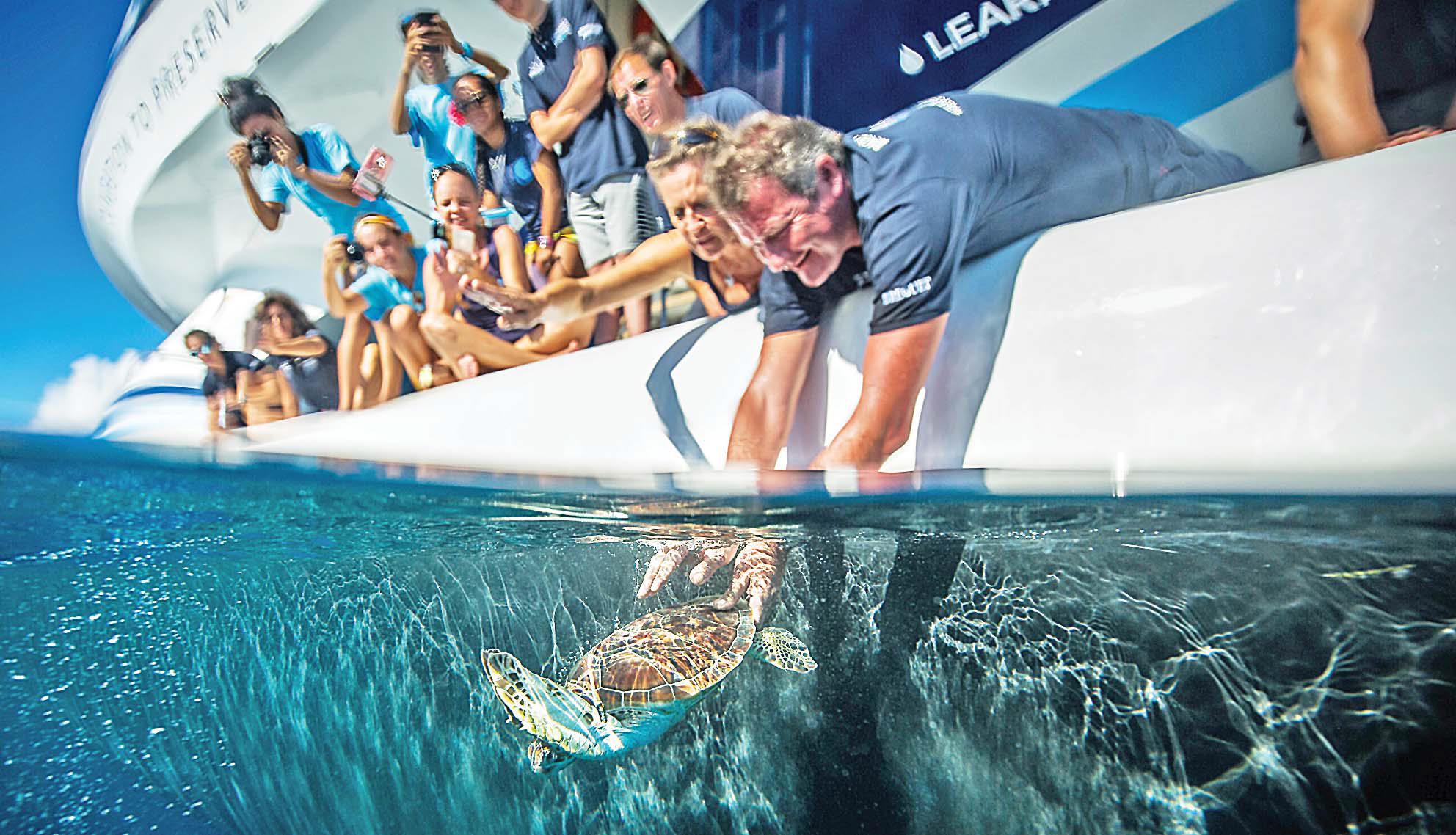THE production of plastic has increased at such an unimaginable rate that by 2050, there will be more plastics than fish in the world’s ocean.
This stark reality was shared by Race for Water Foundation project manager Camille Rollin, who explained that plastic waste was a “toxic time bomb”.
“We know that plastic has existed since 1950 and currently the world’s production of plastic is up to 350 million tonnes per annum,” she said.
“And it is estimated that 10 per cent of this plastic is going into the ocean every year. We have plastic that are degrading in the ocean.
“They turn into microplastics, which are very tiny pieces, that are consumed by a lot of marine organisms mainly fish.
“We found that microplastics will absorb all kinds of pollutants that are in the water, meaning they have pesticides and other toxic chemicals.
“So this means that these microplastics are a toxic time bomb that fish will eat and the fish goes into the food chain and we are at the end of that food chain.”
She said a recent study in New Zealand revealed that out of 34 of their commercial fish species, 33 contained microplastics.
“New Zealand is not that far from Fiji and so is Rapanui and Samoa which is where we have been and we have also found microplastics in their oceans.
“We currently know that microplastics is found in table salt for your food. It is found in water from the tap and in water bottles and so it is in our food.”
She explained that waste washed up along beaches was only a small portion of the total waste dumped into the sea.
“The trash that is in there will degrade and travel to other parts of the world. Most of it has degraded into microplastics floating around the ocean. This is why cleaning the ocean is unrealistic and for us to ensure that our oceans are preserved and does not go through further damage, we need to work before the plastic reaches the ocean. We need to work on land before going to the ocean.”






